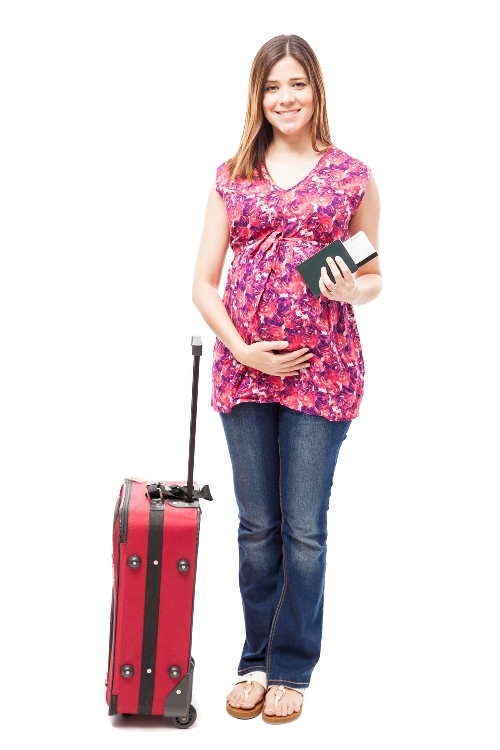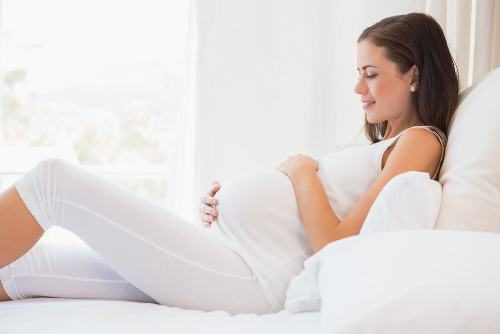This post is also available in: English हिन्दी (Hindi) বাংলা (Bengali)
Don’t be afraid to travel when pregnant.
Fears and misconceptions that people have about traveling during pregnancy are over-hyped! Travel poses no special risk to a healthy woman or her baby. Travel is not recommended only in the case of high-risk pregnancies. So go ahead and plan that babymoon!
When is the best time to travel?
The best time for pregnant women to travel is during the second trimester (between 4 and 6 months of pregnancy). Once, the first trimester is over, morning sickness is almost gone. Pregnancy also gets stabilised in the first trimester. Towards the end of pregnancy, in the last trimester, it is difficult for a pregnant woman to move around and sit for long. Also, there are chances of premature labour with too much exertion. Be that as it may, do take the consent of your doctor before you travel.
Avoid hectic schedules.
Selection of place for travel during pregnancy should be done with a lot of discretion. Your itinerary should be relaxed and flexible – it should change according to your body’s needs. How you feel is one of the best guides to your well being and safety.
Modes of Travel
By Car

For shorter trips, car journeys are the best. You can halt every 2 hours. Have something to eat and drink, visit the bathroom and walk a few steps every time you get out of the car. A cushion to support the lower back is a great asset! A pregnancy belt is recommended for longer journeys.
Wear a seat belt in spite of the air bag. The belt is not going to hurt your baby. The lap belt should be worn below the belly and never across your belly.
By Bus
This should be avoided as bus aisles are very narrow and getting in and out of buses is not very comfortable.
By Train

Trains are more comfortable than buses. You have enough space to walk around and move.
If possible book a seat that’s quite close to the bathroom.
Always hold on to railings whilst moving around.
Night travel is preferred to daytime journey.
And remember, you will not go into labour because of the jerks and the bumps you experience as the train moves.
By Sea

Taking a cruise can be a lot of fun. You can relax when you wish to and enjoy some sightseeing too. It may upset your stomach, so if you have never traveled by ship before, pregnancy is not the time to try it. Make sure, there is a doctor or a well qualified, experienced nurse on the ship. Also the places where the ship docks should be equipped with modern medical facilities. Also, don’t forget carry some safe medication to ward off motion sickness.
By Air (start with air travel followed by car, train, bus and sea)

Travelling by air during pregnancy is quite safe. Your body and baby will quickly get adjusted to the air pressure in the flight.
Choose an aisle seat – so that you can frequently walk around.
Drink plenty of fluids to prevent dehydration.
If possible ask for a seat in the front of the plane (the seats just behind the wall that divides first class and coach or over the wings are ideal) so that you have more leg room.
Do your feet and ankle exercises, to prevent clotting of blood and swollen feet.
Fasten seat belts under your abdomen.
Please note that women past 7 months of pregnancy may require a ‘fit to fly’ certificate. This requirement may differ for various airlines. Also the return journey needs to be well before the due date. For further information, please consult your doctor.
Check with the airlines for its policies because some airlines will not allow pregnant women to fly if they have a previous history of premature delivery or have developed blood clots in their legs earlier.
- Walking through the metal detectors at the airports is harmless.
You also have to make sure that your return journey falls within the set deadline.
Other Pregnancy Travel Tips to make your travel comfortable:

- Carry specific clothes to suit the climate.
- Have comfortable footwear.
- Carry your favourite pillow.
- Be careful of what and where you eat.
- Plan to have frequent rest stops.
- Do your exercise often.
- Carry your basic reports.
- Listen to your body’s cues and do not get carried away by what others are doing.
- Avoid the jacuzzi and sauna, instead enjoy a swim in the pool or pamper yourself at a beauty salon.
- Avoid consuming gas producing foods or drinks before air travel as entrapped gases can expand at higher altitudes and make one uncomfortable.
- Relax and enjoy your holiday; it’s something you truly deserve!
Signs that require immediate medical attention:
- Vaginal bleeding.
- Severe abdominal pain or cramps.
- Uterine contractions.
- Severe swelling or puffiness.
- Strong headaches.
- Leaking of water.
- Visual problems.
BON VOYAGE!
Blog by Dr. Rita Shah

Dr. Rita Shah is a Lactation Expert and a Qualified Lamaze Consultant, trained from the United States. She is also the Director of ‘Dr. Rita Shah – Nine Months: Lamaze’, a fitness program for expectant mothers.
This post is also available in: English हिन्दी (Hindi) বাংলা (Bengali)










